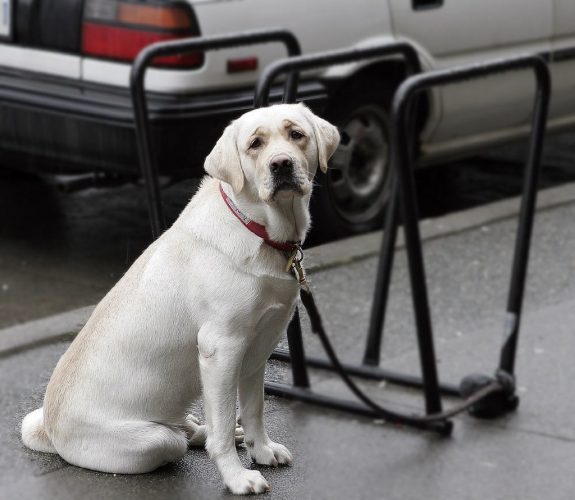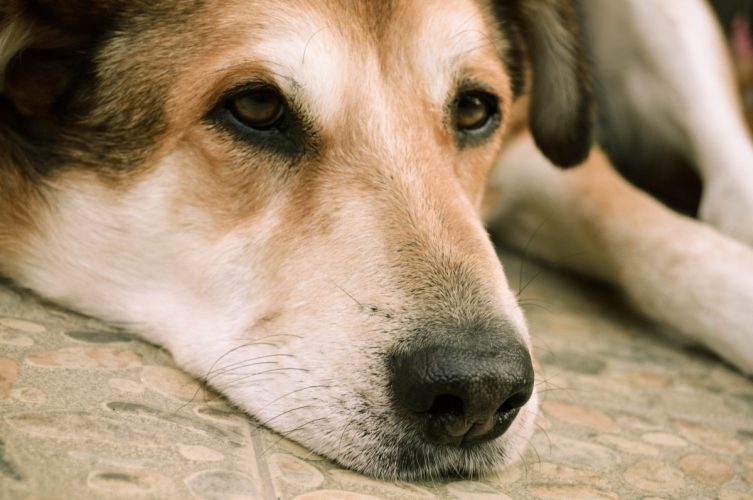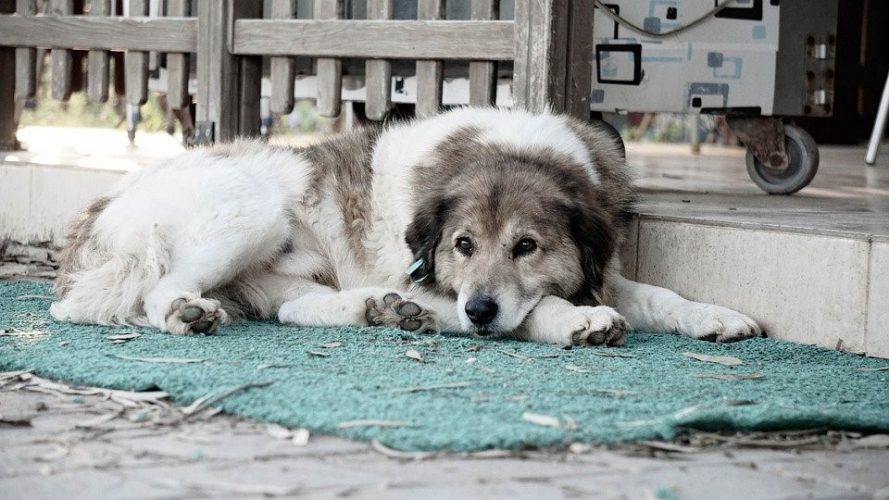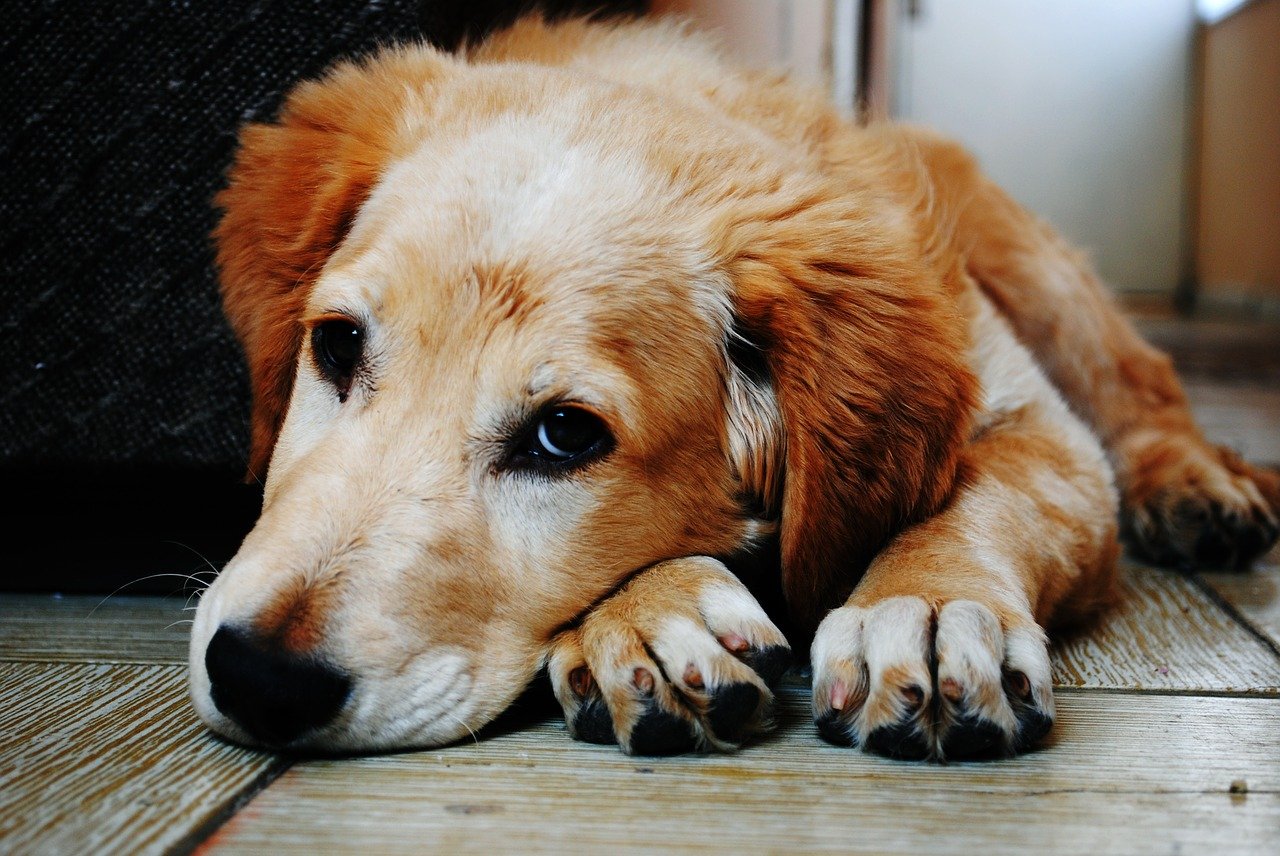How Long Can Dogs Go Without Eating- All You Need to Know
Is your furry friend not eating even though it usually downs food the minute it’s in the bowl? All animals require food to survive. We all know that without food, dogs get sick and can’t thrive. Your dog is no exception.
They should eat an adequate and balanced diet to remain healthy and strong, but what happens if your dog does not eat their food when they’re supposed to? Don’t fret too much, as most dogs can survive for a few days without food, giving you time to figure out what’s going on with your beloved companion.

You must be wondering how long can dogs go without eating, why they might not be eating, and everything you can do to help your canine companion regain their appetite. Luckily, this post has all the details you need to assist your dog and put your mind at ease.
How Long Can a Healthy Dog Go Without Food?
Healthy dogs can survive up to five days without eating. These five days are dependent on whether or not your dog is still drinking plenty of water. Some healthy dogs can even go for a week without eating, but you should never allow things to progress that far without taking your pet to see a veterinarian.
How Long Can an Unhealthy Dog Go Without Food?
If your canine companion is not in the best of health, they will likely be worse for wear after five days without food. The most they can survive without eating is three days and even less without water.
When pups are unwell, they often stop eating. In several instances, it can help them get better faster, but only for a short period of time. This is true if your dog’s illness is related to the gastrointestinal tract and fasting will allow it to recover.
Why Your Dog Won’t Eat
Canine anorexia or inappetence is a reduction or loss of appetite in dogs. The condition can be complete or partial. If your pooch is only eating some foods but inadequate amounts to remain healthy, it may have partial anorexia.
If your dog is refusing food entirely, it’s likely suffering from complete dog anorexia. If your dog desires food but can’t eat, this is known as pseudo anorexia and the dog is not eating because of other problems. It is vital to understand the reason your pup will not eat.
Steps to Finding Out Reasons Your Dog is Not Eating
If it has been two or more days since your canine companion’s last meal, you’re going to start questioning how long can dogs go without eating? You must take action and investigate the possible reasons they’re failing to eat. Below we have highlighted five steps you can follow to determine why your dog won’t eat.
Step 1- Observe Your Dog’s Behavior

When observing your dog’s behavior, check if your dog will not eat anything or won’t eat specific types of foods. Determine if your dog is behaving normally or if there are changes in its day-to-day routine.
Also, pay close attention to your pup’s urine and stool. If everything appears to be normal, you can allow your dog to skip a meal or two.
If they have diarrhea, are vomiting, appear dehydrated, and lethargic, talk to your vet as soon as possible because something is clearly not right. If in addition to a suppressed appetite, your dog is sleeping all day and losing interest in its usual activities, it could be a sign of dog depression.
Step 2- Check your Dog’s Body and Teeth
Loose or broken teeth and inflamed gums are a common reason why dogs won’t eat. When checking your dog’s body, look for changes in their coat and skin, for lumps, and injuries.
If you identify anything suspicious, do not hesitate to contact your vet. Remember that something that may appear to be unrelated to appetite, could be a sign that something’s going on with your dog’s overall health.
Step 3- Look for Issues with Your Dog’s Food
If your dog doesn’t eat their food, ensure there are no problems with it. Investigate by checking the package for the expiry date, examining the color of the food, and the smell of the food. If you think the dog food has gone bad, dispose of it immediately and offer your dog a fresh new option.
Step 4- Scan Your Dog’s Environment
If your dog suddenly stopped eating, it may be because they’ve ingested something dogs should not eat. Check your dog’s surroundings, including carpets, houseplants, toys, and other items your furry mate has access to. Be more careful if there are chemicals and medications within your pooch’s reach and store them safely away.
Step 5- Examine Your Own Actions
Have you been giving your canine companion a lot of table scraps or treats? If you have, then it could explain the loss of appetite. Maybe, your pup is rejecting its regular food because now it wants something tastier, like doggy treats or chunks of your delicious dinner.
Reasons for Loss of Appetite in Dogs
How long can dogs go without eating? This is a common concern among dog owners whose dogs refuse to eat for more than 48 hours. There are hundreds of reasons for a loss of appetite in dogs.
They can range from behavioral problems and medical issues to separation anxiety, environmental problems, and problems with the food itself. The following will highlight common reasons your dog won’t eat. They include:
Depression
Similar to humans, dogs also struggle with depression. Out of their usual character, your pup might be withdrawn and listless. One of the common signs is lack of appetite or even complete refusal of food. If your companion has gone through a significant change and refuses to eat, doggy depression could be to blame.
Symptoms of depression in dogs can also be signs of medical problems. You should first go for a full checkup at the vet. A pooch who appears to be withdrawn and inactive could be struggling with pain from arthritis.
Anxiety
Anxiety is one of the reasons dogs refuse to eat. Your furry companion might be feeling the impact of significant life changes such as meeting a new member of the family or moving houses.
Lack of appetite because of stress and anxiety often passes quickly. You should just ensure that your pup is taking in plenty of water and at least having their favorite treats.
Separation anxiety is also a common reason why dogs won’t eat. The behavior starts 30 minutes after the owner’s departure. The behavior can be expressed by barking, whining, restlessness, escape attempts, and howling.
Medical Conditions
Many illnesses often cause a lack of appetite in dogs. In this case, your pup does not want to eat because they feel unwell. These illnesses can include urinary tract infections, kidney disease, cancer, and dental problems.
Your vet can conduct a thorough physical examination of your dog. They can take a blood sample and test for signs of disease. The vet might also weigh your canine companion to check if their lack of appetite is causing significant weight loss.
Your Dog is a Picky Eater
Sometimes there is no other explanation – your canine companion is just a picky eater. Usually, picky eating is the result of eating too many treats and table scraps.
Your dog may avoid their kibble, which they consider boring and tasteless in hopes of being offered something more exciting. If this is your pup, make sure to hold off on all sorts of treats and table scraps at mealtimes. It will help your dog understand that no other option exists.
How Long Can Dogs Go Without Eating – FAQs
Are you still unsure or concerned about your dog’s eating habits? The following answers to some frequently asked questions could be helpful. If you are still in doubt, ask your vet for professional guidance.
1. How Long can a Pup Go without Eating Before it Dies?
A healthy dog can last without food between three and five days; however, you should check with your vet after the first 48 hours. Like humans, dogs can experience low blood sugar levels if they do not eat as required.

2. Can a Dog Starve Itself to Death?
Healthy dogs are opportunistic feeders who will not starve themselves to death. Terminally ill dogs do often refuse to eat their normal diets and any special foods for their condition.
This is especially seen in dogs suffering from kidney failure. Their refusal to eat accelerates their decline. Dogs with kidney disease might feel nauseous. In this case, you can warm food below body temperature and spoon-feed your dog.
You should not intentionally withhold food from your dog unless you are doing it for a medical reason. For instance, before surgery, it is required to fast your pet for at least six to eight hours. If they eat before surgery, your dog might be at risk of vomiting or aspiration while under anesthesia.
3. Why Would My Dog Stop Eating?
There are various reasons why your furry friend may stop eating such as anxiety, depression, medical conditions, and wanting more exciting food. You might need to change how you feed your pet to make sure they get enough nutrition.
To narrow down the cause of your dog’s changed eating habits, it is vital to observe your dog closely for signs of behavioral problems or illness. If you suspect your pet is unwell, ask your vet for advice.
4. Can I Leave My Dog without Food for A Day?
The question of how long can dogs go without eating has been answered in the above sections. Now you know that healthy dogs can last more than 24 hours without food, and nothing serious will happen to them. However, this can still cause unhealthy stress and strain on the dog’s body, and it is not recommended.
There are a lot of discussions on the argument that dog owners should have their dogs fast occasionally for health benefits, but we don’t recommend this approach. Do not intentionally leave your furry friend without food, even for a day.
Dogs should eat a sufficient and balanced diet at least once a day, so do not fast your dog on your impulses. If your pup feels slight discomfort and stops eating for a day, keep an eye out for symptoms that might indicate something serious like an illness and encourage your dog to eat.
Ways to Feed a Dog that Won’t Eat
It is important to always ensure your dog is eating and help them if they have any difficulties. If your dog is recovering from sickness, it is important to revive its appetite within the shortest amount of time possible.
When making changes to your dog’s diet, it’s best to introduce those changes slowly so your dog has time to adjust to the new foods. If a specialized diet is necessary for an illness and your dog is having trouble eating, ask your vet to confirm if the new food is required and possibly explore other options.
If you have just adopted a dog or have one that is recovering from an illness, here are some recommendations to get them eating again:
Canned Dog Food
Our canine companions often find canned foods quite appetizing. For unwell dogs, there are certain canned foods made specifically for dogs who are recuperating. For a healthy dog, there are many brands on the market to try.
Homemade Dog Food
If you make your dog food, be sure that all pieces are bite-size. Avoid adding salt, sauces, oil, bones, or sugar. Also, limiting fatty foods and ingredients will provide your dog with greater health benefits, even though they may have an appetite for such foods. Healthful ingredients are the most beneficial for your dog’s overall well-being.
Final Thoughts
How long can dogs go without eating is an important question for any dog owner struggling with their dog’s unusual eating habits. The issue can cause much worry and be a true puzzle to solve. In this article you’ve learned how long a dog can survive without food, common reasons dogs lose their appetite, and ways to feed dogs that refuse to eat.
When your dog refuses to eat, it is important to monitor its water intake. They should not go a single day without drinking an adequate amount of water. Make sure they take in at least one ounce of water per pound of body weight each day to alleviate the chance of dehydration.

